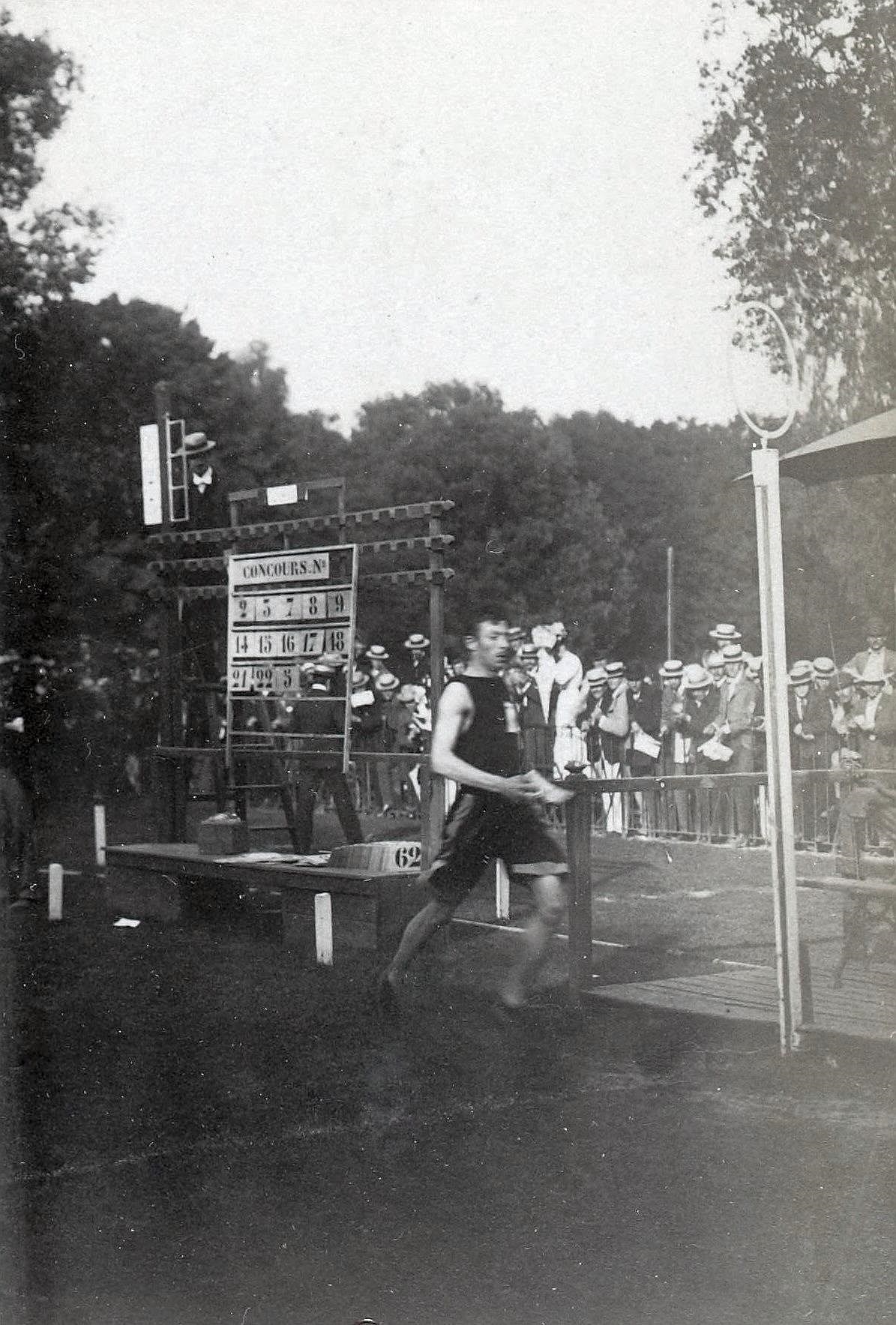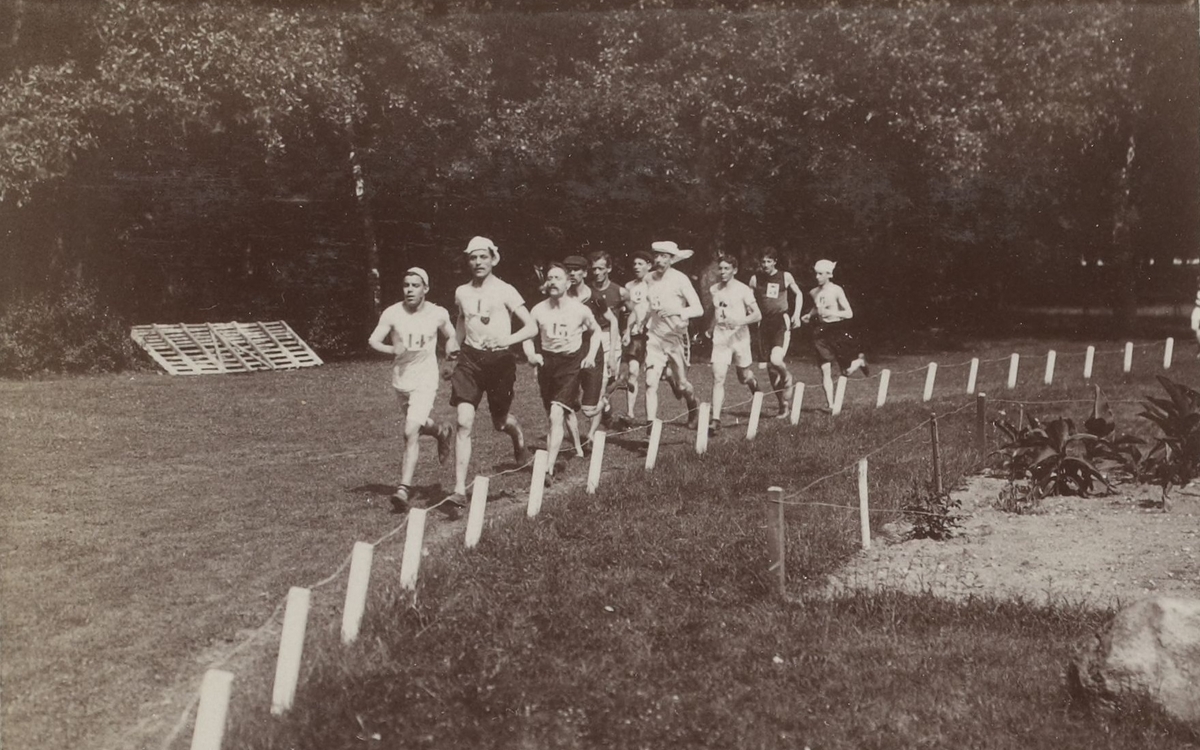Cette page est aussi disponible en français
This article is part of Village Rugby
Do you know the story of French marathon runner Michel Théato, whose victory remains engraved as one of the most incredible moments of the first Olympic Games in Paris, in 1900?
Olympic history is made up of great feats, records and exceptional people but it's also made up of incongruous performances, mixed emotions and singular anecdotes. Such is the case of France's first victory in athletics at the Olympic Games. A timely success for the Tricolor camp, which hardly shone during the Games in an American dominated discipline.
On a sweltering afternoon in the summer of 1900, a certain Michel Théato set off on the 40 kilometer marathon (40.260km in 1900, compared with 42.195km today) from the Pré Catelan garden in the Bois de Boulogne, without much of a track record which few athletes had at the time. On that day, temperatures rose to 35° Celsius in the shade, and only fourteen athletes representing four nations (France, Sweden, the United States and Great Britain) took part in the competition. Strangely enough, the start was given at 2:36 p.m, at the hottest moment of the day.
To crown it all off, the race took place while Parisians and city traffic continued as if nothing was happening. Horse-drawn carriages, streetcars, cyclists and even herds of cattle near the abattoirs at La Villette were all potential obstacles for the runners.
Circumnavigating Paris
Leaving the Bois de Boulogne, the marathon runners had to circumnavigate Paris, with only six checkpoints ensuring they stayed on course: Porte Maillot (6 km), Porte de la Villette (14.2 km), Porte de Vincennes (20.3 km), Porte de Châtillon (29.5 km), Porte du Point-du-Jour (33.5 km) and Porte de Passy (37 km). The course circled Paris' fortifications, earning it the nickname "marathon des fortifs" from journalist Géo Lefevre. Michel Théato took the lead around the halfway mark. He never relinquished it and won with 2 h 59 min 45 s on the clock back at the Croix-Catelan, a former stadium in the 16th arrondissement.

Michel Théato crosses the finish line.
Crédit photo :
Bibliothèque nationale de France
Controversy ensued. Foreign delegations disputed his victory, accusing him of taking shortcuts. He was investigated: he had worked in a bakery and therefore knew Paris like the back of his hand while making deliveries! An American athlete even attacked the organization directly, claiming to have been hit by a bicycle while in the lead.
While all these accusations have been dismissed over the years, the Luxembourg-born athlete's success is still marred by one stumbling block. As a reward, he received a china pot, as the marathon did not initially appear on the official Games' program. It wasn't until 1912 that he received his gold medal.
After his Olympic triumph, Michel Théato turned professional, but didn't really shine again. He finished runner-up in the French cross-country championships in 1901, but his glory days were over. He died with little fanfare in Paris on April 2nd, 1923.
Interested in the history of the Olympic Games?
Default Confirmation Text
Settings Text Html
Settings Text Html
We want to hear from you!
Was this information useful to you?
Please note: we cannot reply via this form (please do not include any personal information).


